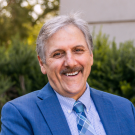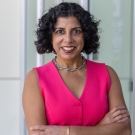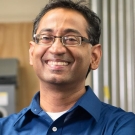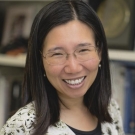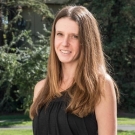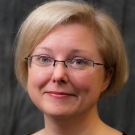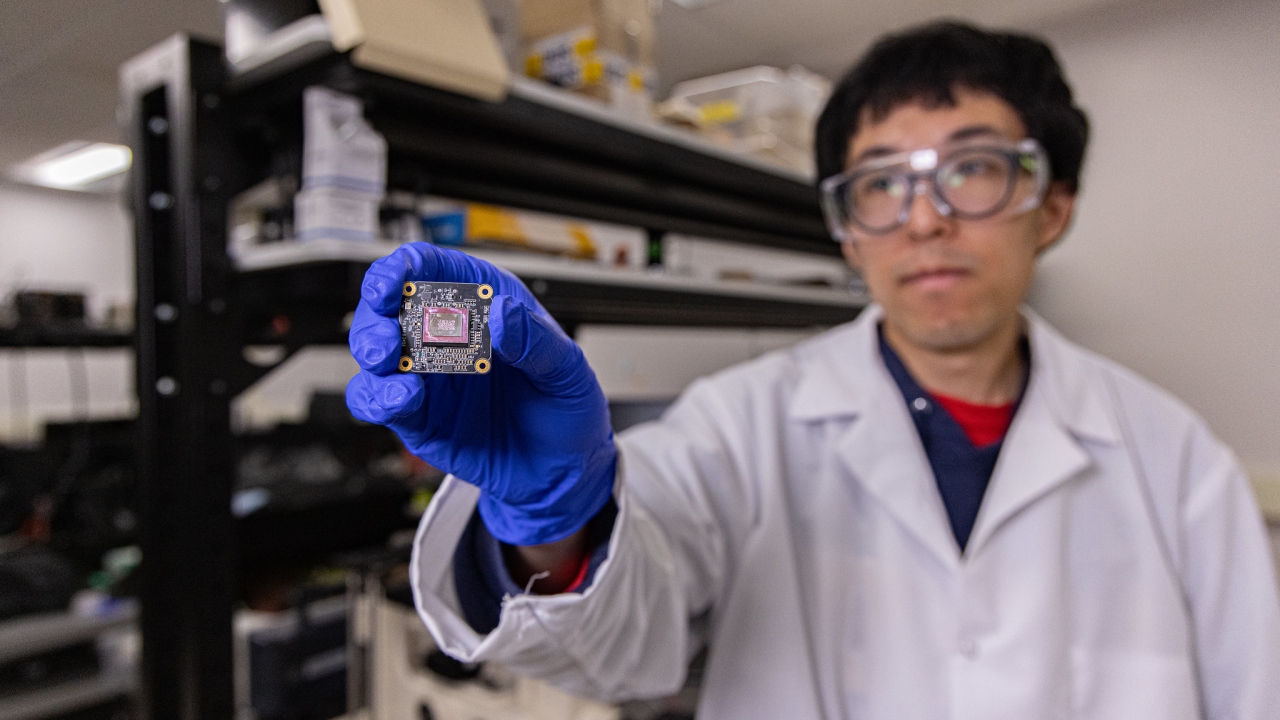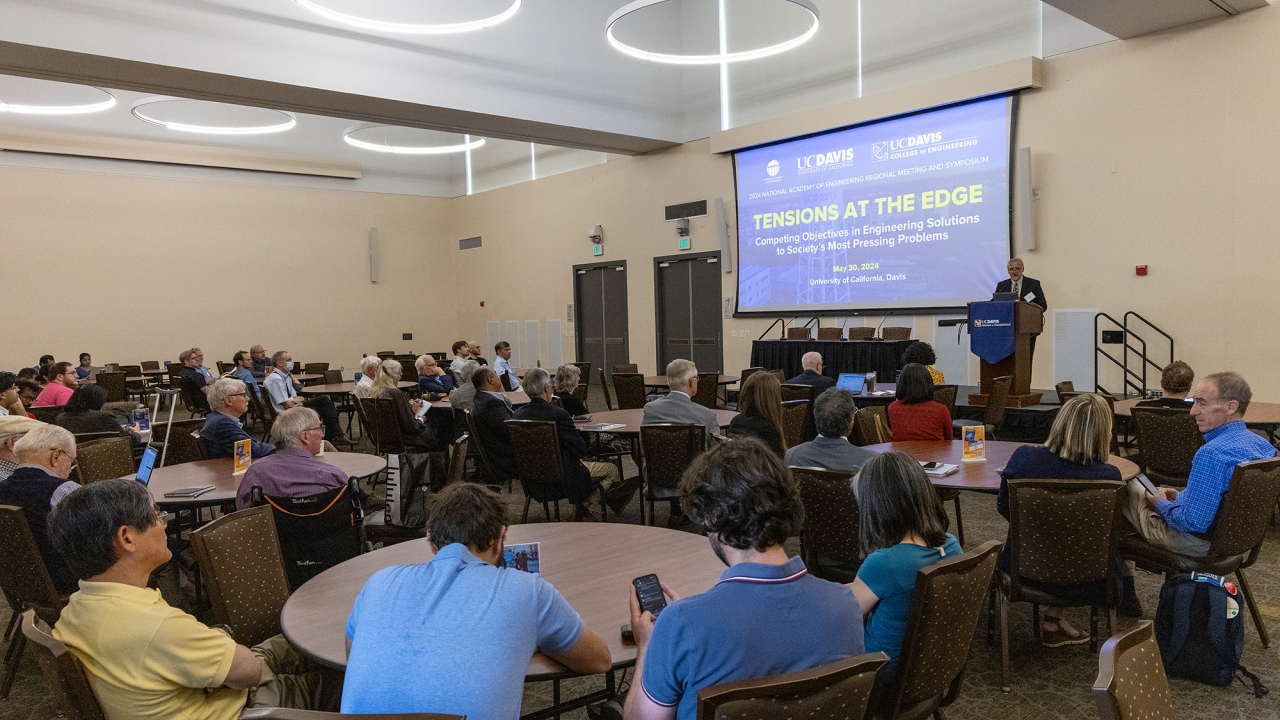
Engineers Discuss Competing Objectives for the Future
As engineers worldwide work to solve complex problems, overlapping objectives can cause unintended tensions. While these tensions can result in conflicting interests and goals, discussing them can lead to comprehensive solutions for modern-day issues.
The National Academy of Engineering (NAE) collaborated with the University of California, Davis, to encourage inclusive discussions on engineering solutions at the 2024 NAE Regional Meeting, Tensions at the Edge: Competing Objectives in Engineering Solutions to Society’s Most Pressing Problems. Hosted at UC Davis on May 30, the event featured presentations, tours, and networking opportunities focused on industry tensions in areas such as health, food, and infrastructure. Meeting attendees enjoyed tours of the on-campus labs, including the Center for Nano-MicroManufacturing, the Diane Bryant Engineering Student Design Center, and the university’s new Coffee Center, touted as the “first multidisciplinary university research center to address the challenges and needs of the coffee industry through a holistic approach to coffee science and education.”

“The journey from an engineer’s idea to a finished product is intricate. Understanding how inventions interact and overlap with the world not only creates better products but also well-rounded engineers,” said NAE President John Anderson. “The UC Davis symposium was a fantastic finish to the NAE Regional Meeting lineup, which includes four regional meetings held each year, in various geographic locations.”
Video highlights of the 2024 NAE Regional Meeting, Tensions at the Edge: Competing Objectives in Engineering Solutions to Society’s Most Pressing Problems, may be viewed here.
John Anderson, Richard Corsi, dean of the UC Davis College of Engineering, and Simon Atkinson, vice chancellor for research at UC Davis, provided opening remarks.
Raissa D'Souza, associate dean for research in the UC Davis College of Engineering, provided the overview of the meeting, noting, “Our goal today is to leave with a better understanding of the system that we live in and the different competing objectives and stakeholders.”
In his presentation, “Tensions in the Energy Ecosystem, from Renewables to Data Centers,” Vinod Narayanan, professor of mechanical and aerospace engineering at UC Davis, highlighted the fact that the U.S. has enough renewable resources to fuel our energy demands, but the low cost of natural gas precludes large-scale market adoption.
“There's plenty of sources, so of course we will rethink how you generate it, how you transmit it, and how you store the energy because those are going to be interpreted in solutions,” Narayanan noted.
He explained there is also a staggering increase in the demand for energy fueled by the growth of data centers and clean manufacturing practices. Potential solutions include multifunctional heat pumps that transform waste heat and modular data centers with minimal energy and water consumption.
“Tensions in Health and AI: Towards Accessible Smart Health Services,” presented by Chen-Nee Chuah, professor of electrical and computer engineering at UC Davis, showcased how smart sensors and edge technologies stand to transform healthcare, from monitoring and diagnostics to personalized therapeutics.
“All of this is possible … so let’s talk about how to bring these technology innovations to translational research: Scale it up to actually make it truly accessible to end users,” she stated.
According to Chuah, technical challenges include new machine learning approaches, validation, data privacy, and security. Socioeconomic challenges include engaging health care providers and bridging the digital divide.
Sabbie Miller, associate professor of civil and environmental engineering at UC Davis, highlighted the massive increase in the demand for building materials, energy, and food fueled by our growing global population in her presentation, “Tensions in Concurrent Engineering of Food, Energy and Materials Systems.”
“At the same time that we have had a growing population worldwide, we have also had growing affluence worldwide,” Miller said. “This causes a huge environmental challenge. It’s a little bit simplified, but you can kind of think of our environmental impact as a function of our population, our affluence, and our technology.”
A holistic view of a virtuous cycle of biowaste, new manufacturing approaches for concrete and plastics, and carbon sequestration solutions was presented as a path forward.
The symposium also featured eight “flash talks” on engineering solutions, including drone networks for early forest fire detection, sustainable turbine blades made from mycelium, climate engineering through radiative cooling, ocean water sequestration of carbon dioxide, low-cost approaches to indoor air quality, electric vehicles and grid dynamics, accelerating RNA vaccine discovery, and AI and food systems.

The symposium concluded with an engaging panel discussion moderated by Raissa D’Souza. The panel featured Brett Singer, a senior scientist at Lawrence Berkeley National Laboratory and an expert on building health and transforming basic research into policy; NAE member Robert Kiss, a world leader in biotherapeutics and the executive vice president of Technical Operations at Upside Foods, which creates cultivated meat grown from animal cells; Cristina Davis, the associate vice chancellor for research at UC Davis and an expert in biological and chemical sensing with extensive experience in the IP space; and Tony Meyers, the chief operating officer of the California State Water Project, who has overseen massive and transformative engineering infrastructure projects. The discussion centered on the biggest challenges and associated tensions these leaders are facing: how to scale up cultivated meat, the role of the national labs and the NAE, enabling team science, how to modernize California’s water system while protecting the ecosystem, and the “silver tsunami” of retirements facing the critical infrastructure community.
More than 100 people, including graduate and undergraduate students, from various regions of the U.S. participated in the meeting.

